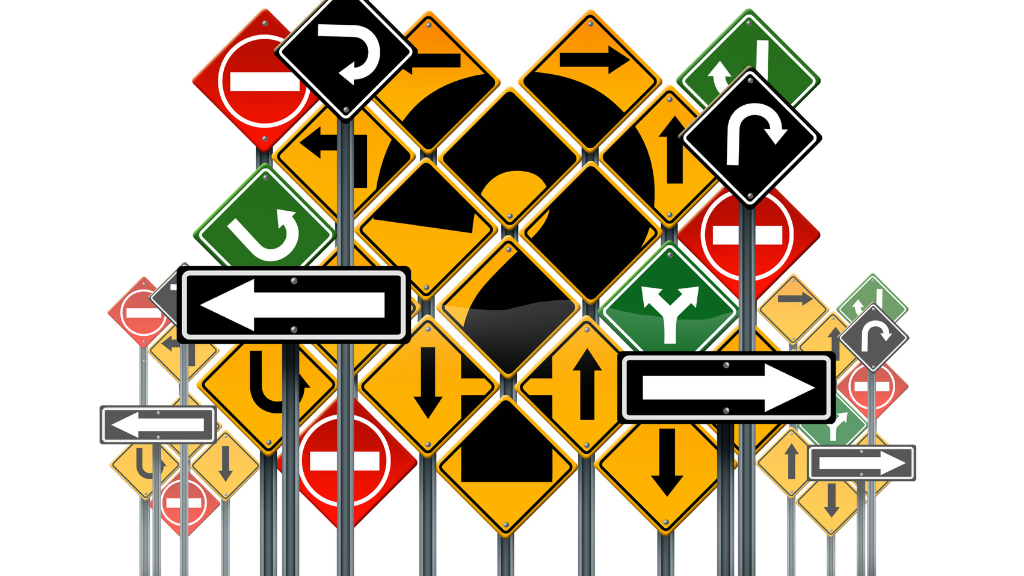
THE FOUR ALCHEMICAL QUESTIONS: DECODING DECISION-MAKING IN TIMES OF PERMACRISIS
Why true leaders don’t answer better—they ask differently.
Reading the article “In Uncertain Times, Ask These Questions Before You Make a Decision” by Cheryl Strauss Einhorn (HBR, 2025) prompted me to deeply reflect on the challenges of decision-making in uncertain contexts. Inspired by this, I present an integrative perspective that connects behavioral psychology, neuroscience, and philosophy to enhance our decision-making capacity amid contemporary complexity.
We live in an era where decision-making has evolved from a simple rational act to a challenge that traverses the intricate, invisible networks of human and organizational dynamics. These are not merely choices: labyrinths of people, culture, innovation, risk, and uncertainty intertwine at every decision point.
In this scenario, a fundamental paradox emerges:
it’s not the scarcity of alternatives that undermines success, but the excess of hasty decisions made under pressure, based on outdated mental models.
This paradox leads to the collapse of traditional logic.
Neuroscience, with clinical precision, shows that under extreme pressure, our brain enters the so-called “ambiguous threat state.” In this state, the prefrontal cortex—the seat of reason, analysis, and planning—is partially silenced, while the visceral and emotional limbic system takes control. The amygdala, the vigilant guardian of risk, amplifies threat perception by up to 300%, narrowing our focus to a microscopic and limited lens.
What’s the effect? Decisions made in this context not only lose effectiveness quickly—they often become dysfunctional within six months, carrying the potential for billion-dollar losses in large corporations.
However, the deepest trap is invisible:
we unconsciously repeat automatic responses based on mental patterns that fail to keep pace with transformations.
Here emerges the fallacy of “solving quickly.” Traditional organizational culture taught that immediate responses equate to competence—yet this impulse distances us from true transformation.
The revolutionary power lies in the question.
The right questions are keys that dismantle the mind’s automatic locks, creating space for the new, the essential, and the invisible that sustains complexity. Asking is an alchemical act: it shifts perspective, transforms pressure into wisdom, and creates fertile ground for decisions that transcend the immediate.
The Four Alchemical Questions – The Art of Deciding in the Age of Permacrisis
In times where the only certainty is instability, leadership faces a disquieting paradox: the urgency to decide quickly versus the vital need for decisions that transcend the ephemeral and endure over time. Neuroscience reveals that under stress, our brain activates ancestral shortcuts—the orbitofrontal cortex loses effectiveness, the amygdala inflames threat perception, while the nucleus accumbens seeks immediate relief, abandoning sustainable solutions.
It’s no surprise that 72% of decisions made in crisis lose their value in less than six months, highlighting how fleeting “certainty” can be in a permacrisis.
Conversely, leaders who transcend this chaos do so not because they have more data or enhanced intuition—but because they dare to ask differently, challenging their own mental models and creating new spaces to think and act. It is in this fertile ground that the Four Alchemical Questions emerge as an integrative framework, conjuring neuroscience, philosophy, and leadership to transform pressure into decision-making wisdom.
1. The Mirror of Time: The Future as a Decision Criterion
“What choice today will still make sense 365 days from now?”
Our mind possesses the prodigious capacity for mental prospection—a neurocognitive exercise that allows us to construct possible futures. However, under pressure, this ability atrophies, shrinking to immediate reaction. The Mirror of Time calls us to reclaim this faculty, projecting the impact of our decisions along a timeline that transcends present urgency.
In a notable example, a CEO who resisted the temptation to cut sustainability investments retained 38% of the young audience and saw revenue grow by 23% in just 18 months. This decision, a true alchemy between strategic vision and courage amid instability, contrasts with reactive responses, rooting thought in the long term.
Exercising the Mirror of Time requires more than reflection—it demands discipline to map, across multiple time horizons, the tangible and intangible effects of each choice, dismantling the short-term illusion that dominates permacrisis thinking.
2. The Mirror of Legacy: The Ethical and Existential Filter
“If this decision becomes a case study, what message will it convey about our leadership?”
In this realm, existential philosophy intertwines with social neuroscience, revealing the power of ethical self-reflection in decision-making. Building a legacy is not mere rhetoric but a profound cognitive process that reconnects the leader to their foundational values—the internal compass that guides and withstands chaos.
Practicing the confrontation of team values with the decision made is essential to anchor the process in solid principles. Data indicates that 83% of “brilliant” decisions fail under the scrutiny of ethical coherence, exposing a chasm between apparent effectiveness and real integrity.
The Mirror of Legacy facilitates “anticipated moral judgment,” foreseeing reputational and existential consequences, balancing urgency and depth in the decision-making journey.
3. The Mirror of Chaos: The Hidden Opportunity in Disorder
“What if this isn’t a passing storm, but the new permanent climate?”
Recent crises—like the pandemic—revealed that the ability to see chaos as fertile ground for reinvention distinguishes resilient leaders from those who merely survive. The Mirror of Chaos proposes a paradigm shift: crises are not mere problems to be extinguished but signals that expose “dead truths” in our mental and organizational models.
The experience of organizations that tripled their growth by treating the pandemic as a rehearsal for future disruptions illustrates this systemic perspective. Neuroscientifically, this stance broadens the attentional field, dilutes paralyzing fear, and reactivates the prefrontal cortex—the cradle of creative planning.
The challenge lies in mapping obsolete beliefs, processes, and structures, using them as a springboard to build adaptive models—a mental alchemy that converts crisis into opportunity.
4. The Mirror of Inertia: The Invisible Cost of Hesitation
“What is the hidden cost of not deciding now?”
In this mirror, behavioral neuroscience meets behavioral economics and risk management, revealing the hidden face of procrastination, often cloaked in the guise of prudence. Hesitation can cost more than a mistaken decision.
Here emerges the innovative concept of the “inaction thermometer” — real-time metrics that measure the loss generated by hesitation, whether through missed opportunities, brand erosion, or invisible costs arising from inefficient processes.
Striking data shows that 62% of companies that delayed digital decisions lost their competitive edge, revealing the systemic impact of inertia. Neurobehaviorally, this phenomenon is sustained by amygdala hyperactivity, which amplifies the fear of making mistakes and paralyzes executive action.
Thus, building awareness of these hidden costs and implementing routines of deliberate decision-making — even amidst uncertainty — constitutes the alchemy that converts anxiety into productive action.
The Mirror of the Invisible: The Unspoken as a Strategic Compass
“What are we not seeing, naming, or daring to question?”
In the heart of every complex decision lies an invisible layer—composed of unspoken assumptions, unconscious fears, and systemic blind spots. The Mirror of the Invisible invites us to illuminate these hidden dimensions, recognizing that what is not said often has more power than what is articulated.
This question acts as a catalyst for deep listening and systemic perception, enabling leaders to uncover underlying patterns and dynamics that influence outcomes. By bringing the invisible to light, we expand our awareness and create space for more holistic and transformative decisions.
The Practical Laboratory of the Four Questions
Turning the model of the Four Alchemical Questions into practice requires more than intention: it demands rigorous discipline, continuous self-observation, and conscious experimentation.
• Log your daily micro-decisions. This simple habit reveals automatic patterns and unconscious biases, opening a portal to decision-making self-awareness.
• Exercise the four mirrors on pending decisions. Record insights, internal contradictions, and the subtle noise that escapes in the accelerated flow of urgency.
• Ethically evaluate past decisions. This honest retrospective builds the bridge between values and results, between who we wish to be and what we actually practice.
• Identify moments of chronic hesitation. Quantify its invisible costs — reputational, emotional, or operational — and face inertia as the hidden enemy of evolutionary leadership.
• Project alternative future scenarios. Prospective imagination must be trained like a muscle so that the future ceases to be a fixed point and becomes an open field of emerging possibilities.
This laboratory is not a mere intellectual abstraction, but the fertile ground where decision-making architecture is reconfigured. A cognitive reboot that expands the capacity to navigate with wisdom, courage, and presence in a world marked by continuous instability.
A New Cognitive Muscle for Leadership
Leading today is an alchemical exercise that synthesizes paradoxes: doubt and action, reflection and intuition, courage and prudence. It is learning to think while feeling, to act while questioning, to decide while constructing meaning.
At the core of this process lies the awareness that decision-making is not merely choosing among pre-existing options, but the active creation of new cognitive, ethical, and strategic spaces.
By mastering the Four Alchemical Questions, the leader transcends the role of a mere reactor to a changing landscape and becomes a craftsman of the future — someone who uses doubt, chaos, and uncertainty not as obstacles, but as raw material for excellence and continuous evolution.
This is an invitation to experiment, document, share discoveries, and move forward together in this rare and profound art: deciding with soul, science, and vision.
Because it is no longer about mastering answers, but about cultivating questions that expand awareness and destabilize the status quo — an act of courage and creation that redefines leadership in the 21st century.
An Invitation to Reflective Experimentation
In the next 24 hours, allow yourself a rare and powerful pause: select a real, complex, and uncomfortable decision. Do not seek immediate answers — instead, subject it, with clinical rigor, to the four alchemical mirrors, one by one. Observe the cognitive distortions that emerge, the paradoxes that challenge your mental maps, and the new perspectives revealed in the silence of this deep inquiry.
Ask yourself:
• Which of the four mirrors most expanded my clarity?
• How does my mental architecture transform when exposed to the pressure of uncertainty?
As I always affirm
“The quality of leadership is proportional to the quality of the questions the leader allows themselves to ask in moments when the world cries out for answers.” — Marcello de Souza
This is an invitation to transcend the automatism of hasty decision-making and enter the subtle art of deciding with soul, science, and vision — so that action gains not only effectiveness but, above all, meaning.
Shall we continue this conversation? Share your discoveries:
Which mirror most intensely challenged your mental models? What inner tensions emerged? What new questions now inhabit your gaze?
For leaders and teams who wish to go beyond discourse and experience the practical transformation of the Four Alchemical Questions Framework, I offer exclusive strategic consulting — a deep journey to reconfigure decision-making and cultivate evolutionary and conscious leadership.
Suggested Reading:
This text is inspired by the excellent article “In Uncertain Times, Ask These Questions Before You Make a Decision,” by Cheryl Strauss Einhorn, published in the Harvard Business Review in 2025. I highly recommend reading the original source for a direct and in-depth dive into the proposed questions, available at:
https://hbr.org/2025/05/in-uncertain-times-ask-these-questions-before-you-make-a-decision?ab=at_art_art_rr_v1x4_s02
#marcellodesouza #marcellodesouzaoficial #coachingevoce
#ReflectiveLeadership #ConsciousDecision #Neurostrategy #PhilosophyOfLeadership #DecisionMaking #InnovationCulture #QuantumLeadership #AlchemicalDecision #AppliedPhilosophy
Você pode gostar

Reflections on Freedom and Human Will
15 de janeiro de 2024
ORGANIZATIONAL HAPPINESS PART 1: ARE THEY ALL JUST MYTHS?
24 de janeiro de 2024
